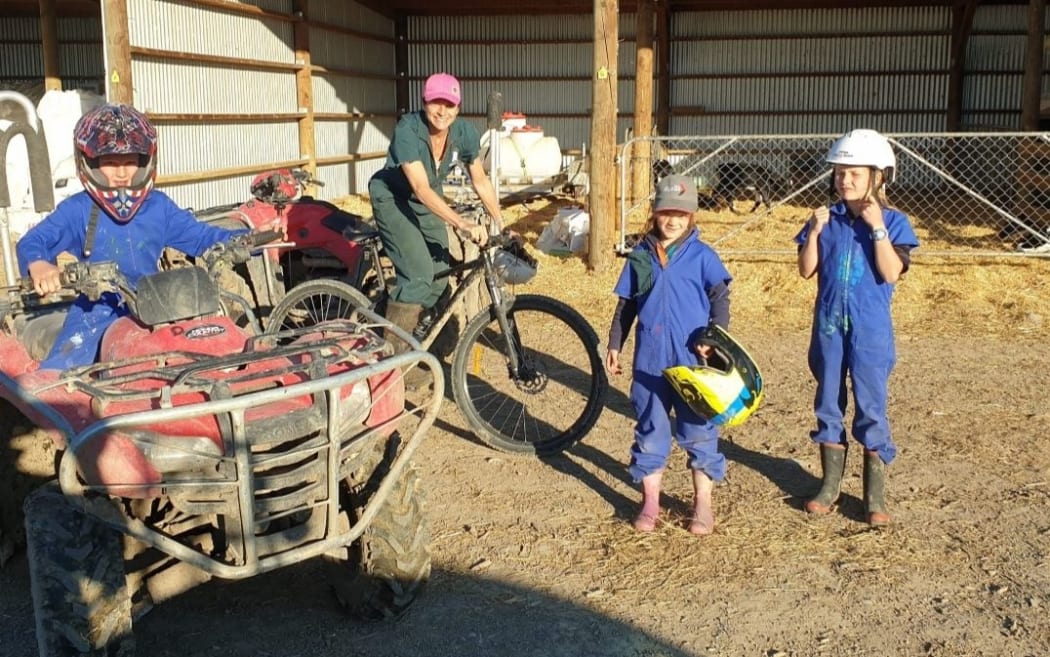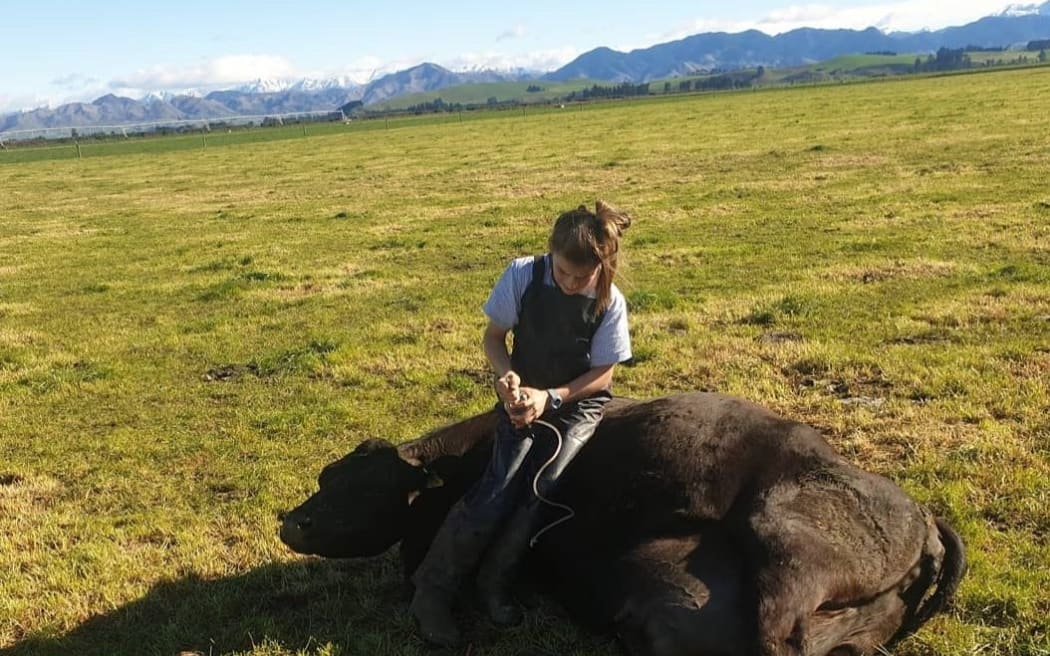Dairy farmers trying to get workers in from overseas say they're having to get their children to help with work just to get by.

Benjamin, Lou, Anita and Angeles Mones-Cazon helping out on their Culverden dairy farm. Photo: Supplied
In June the government announced 200 dairy workers would be allowed into the country to help with the labour shortage - but without set aside MIQ spots none have arrived.
From today a new system was introduced to try and make it easier for people trying to nab a spot.
People had an hour to try and book and were put in a randomised queue and given a spot when they reached the front.
Waikato dairy farmer Warren Brewster who has been short staffed for a year - is trying to get a worker in from The Philippines.
"It's been pretty tough trying to get him in, we tried before the first lockdown and then with the way things have gone there just hasn't been a good opportunity because my daughter was fighting cancer for the last three years and she passed away on the 3rd of June.
"So we sort of need to try and get someone in as quick as we can to sort of help ease the stress, and so I can spend more time with my wife and other daughter."
He said it took 11 weeks for Dairy NZ to accept his application- which now has to go through Immigration New Zealand before he can attempt to get a spot in MIQ.
"When they said, you know, we would be able to get someone here relatively quickly, in 12 weeks, at the most we jumped at it, and you know, it's cost a lot of money. And we're no further ahead."
Brewster was doubtful the new MIQ booking system would make things easier.
"They promised to let people in and set aside 200 beds for these dairy workers and yeah nothing, we should have already had them in New Zealand because it's really stressful for farmers at the moment."
He said he's been advertising work on multiple sources online with no luck.

Rosario Mones-Cazon treating a downer cow. Photo: Supplied
Culverden share milker Daniel Mones-Cazon, who is trying to get two workers in from the Philippines, said his children are having to chip in on the farm in order to get the work done.
"My wife and I have been working around the clock, we've calved our 1800 herd with four full time staff, we just can't get anyone here to help us.
"It's just not sustainable and we are really frustrated about how long this whole thing has taken."
He felt let down by industry group Dairy NZ which is processing initial applications for the visa exemptions.
"They are supposed to advocate for us but we have spent months just waiting and having our kids working on the farm so we can give our two staff a day off.
"It's incredibly frustrating, I don't think the government understands what we are going through."
Like Brewster he has been advertising to fill the job vacancies or months but said there was simply not enough workers in the country.
DairyNZ chief executive Tim Mackle said overall we would like the whole government-determined process to be quicker and simpler for farmers. It's important to point out that this is the only way in which a class exception process can run - as dictated by the government.
He said more than 50 percent of border class exception applications received have been processed and moved on by DairyNZ within two weeks.
"DairyNZ is required to support the process by vetting farmer applications to ensure they meet the rules provided by government. Many of the applications require some back and forth correspondence to fill gaps in the information.
"Once approved by DairyNZ, applications are sent to MPI for their approval as stage two of the process. On average, the MPI approval process has occurred within two weeks. Farmers then proceed to Immigration New Zealand."
We have been advocating for the entire process to be improved, simplified and more practical, Mackle said.
He added the high demand for MIQ spaces reinforces the need for dedicated beds to provide farmers with certainty they can book space for workers


